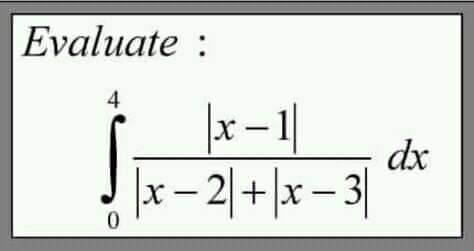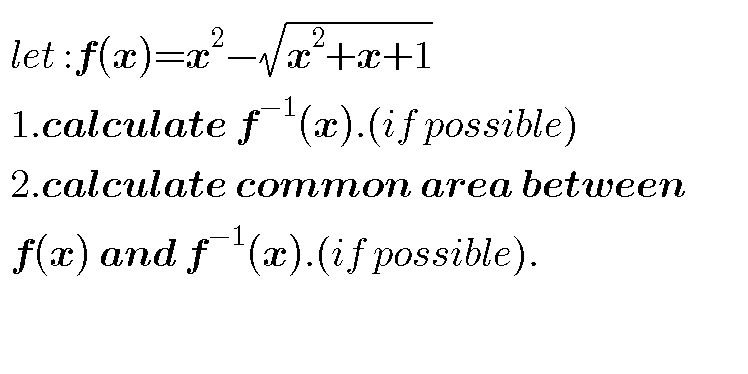
IntegrationQuestion and Answers: Page 263
Question Number 48171 Answers: 0 Comments: 1
Question Number 48170 Answers: 1 Comments: 1
Question Number 48127 Answers: 1 Comments: 0

Question Number 48104 Answers: 1 Comments: 0
Question Number 48078 Answers: 1 Comments: 0

Question Number 48067 Answers: 0 Comments: 1
Question Number 48064 Answers: 1 Comments: 1
Question Number 48063 Answers: 0 Comments: 0
Question Number 48062 Answers: 0 Comments: 0
Question Number 48057 Answers: 2 Comments: 1

Question Number 48043 Answers: 0 Comments: 1
Question Number 48042 Answers: 0 Comments: 1
Question Number 48040 Answers: 0 Comments: 1
Question Number 48027 Answers: 2 Comments: 1

Question Number 47985 Answers: 1 Comments: 3
Question Number 47967 Answers: 1 Comments: 0
Question Number 47915 Answers: 2 Comments: 0

Question Number 47863 Answers: 0 Comments: 0
$${find}\:\int\:\sqrt{\mathrm{1}−{x}^{\mathrm{4}} }{dx} \\ $$
Question Number 47852 Answers: 0 Comments: 1
Question Number 47851 Answers: 2 Comments: 3
Question Number 47850 Answers: 1 Comments: 2
Question Number 47737 Answers: 1 Comments: 0
Question Number 47720 Answers: 2 Comments: 0
$${find}\:\int\:{ln}\left(\mathrm{1}+{x}^{\mathrm{3}} \right){dx} \\ $$
Question Number 47677 Answers: 0 Comments: 3
Question Number 47675 Answers: 2 Comments: 0
Question Number 47651 Answers: 1 Comments: 1
Pg 258 Pg 259 Pg 260 Pg 261 Pg 262 Pg 263 Pg 264 Pg 265 Pg 266 Pg 267
